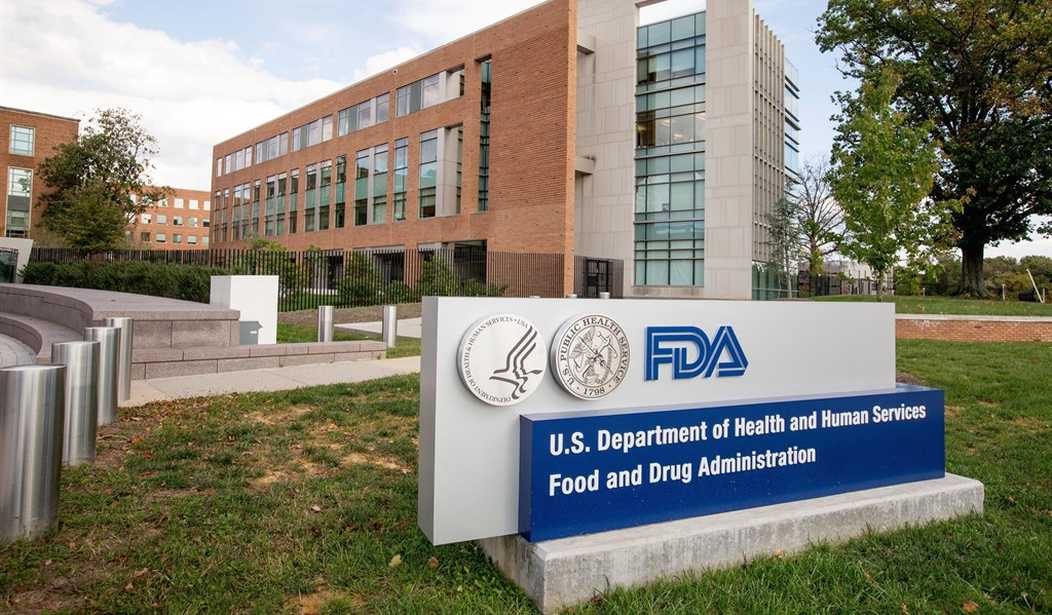In all of the debate over how to motivate the hesitant to get vaccinated against COVID-19, the one step government can take on its own gets only rare mention. All three approved vaccines still operate under an emergency-use authorization from the FDA, a status that gives the impression of an experimental drug. With Phase 3 testing long completed — and 165 million Americans fully vaccinated — what more does the FDA need for full approval?
That answer isn’t clear, although the New York Times reports that their timetable is now clearer:
With a new surge of coronavirus infections ripping through much of the United States, the Food and Drug Administration has accelerated its timetable to fully approve Pfizer-BioNTech’s coronavirus vaccine, aiming to complete the process by the start of next month, people familiar with the effort said.
President Biden said last week that he expected a fully approved vaccine in early fall. But the F.D.A.’s unofficial deadline is Labor Day or sooner, according to multiple people familiar with the plan. The agency said in a statement that its leaders recognized that approval might inspire more public confidence and had “taken an all-hands-on-deck approach” to the work.
Giving final approval to the Pfizer vaccine — rather than relying on the emergency authorization granted late last year by the F.D.A. — could help increase inoculation rates at a moment when the highly transmissible Delta variant of the virus is sharply driving up the number of new cases.
Yes it could, which raises the question as to why the FDA hasn’t acted sooner. It has an enormous wealth of real-world data on both performance and side effects for the Pfizer, Moderna, and Johnson & Johnson vaccines, even against the Delta variant. The side effects are rare and mostly minimal, while thus far the protection against hospitalization or death is upward of 99%. Those are spectacular results, and given that these are only two doses as opposed to regularly consumed medicines, they have had more than enough time and data to reach a decision.
For that reason, it still seems unclear why they have to wait at least another four weeks to come to a decision. Experts are increasingly mystified too:
Federal regulators have been under growing public pressure to fully approve Pfizer’s vaccine ever since the company filed its application on May 7. “I just have not sensed a sense of urgency from the F.D.A. on full approval,” Dr. Ashish K. Jha, the dean of the Brown University School of Public Health, said in an interview on Tuesday. “And I find it baffling, given where we are as a country in terms of infections, hospitalizations and deaths.”
Moderna filed for full approval on June 1, two months ago. (J&J has not yet requested full approval.) Despite a multitude of large data sets and clear outcomes, however, the FDA has dragged its heels on the one action it could take that would boost confidence in the vaccines among the hesitant.
The delay might trip up both government and employers, not just in terms of incentivizing people to get vaccinated but also for imposing mandates:
A number of universities and hospitals, the Defense Department and at least one major city, San Francisco, are expected to mandate inoculation once a vaccine is fully approved. Final approval could also help mute misinformation about the safety of vaccines and clarify legal issues about mandates.
This might not be as big of a legal hurdle as it seems. Two federal courts didn’t balk at upholding Indiana University’s vaccine-or-testing-regime mandates for staff and students on the basis that the vaccines are experimental, but it could become an issue when dealing with collective bargaining and unions. At the very least, it introduces some uncertainty where none should really exist at all on this point, even if these employers move forward with their own workplace mandates.
This delay raises another question: will this be a moot point by Labor Day? The Delta variant is racing through the remaining unvaccinated populations, creating a massive spike in cases but thus far not a corresponding spike in deaths — although those have also ticked upward:

The Delta variant raced through the UK too, only to suddenly decelerate and have case reports revert back to the pre-Delta mean. Experts such as Dr. Scott Gottlieb have looked at the data and believe we are farther along the Delta wave than we think, which means the time in which we can stem at least some of this spread is growing shorter by the day. The time to incentivize vaccinations is now, not Labor Day or afterward. And while those rates have improved over the past month, it’s still barely better than a plateau:

The FDA should have acted months ago to finalize its approval on all three vaccines. The window for significant benefit from such a move may already be closing as the spread of Delta hits the half of Americans who either can’t or won’t vaccinate.








Join the conversation as a VIP Member